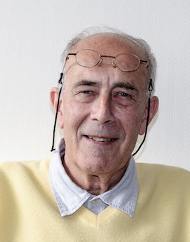Présidents de session
Thursday 14:00-16:00
- Peter Ring (Physics Department Technical University Munich)
I will present the results of nuclear collisions involving medium mass or heavy nuclei, obtained within time-dependent density functional theory (TDDFT) extended to superfluid systems. I will discuss the possible manifestations of pairing dynamics in nuclear collisions, at the vicinity of the Coulomb barrier. These include the mechanism for the increase of the barrier for capture generated by...
The rapid neutron capture process, or $r$ process, is responsible for the production of about half of the elements heavier than iron found in nature, including the heaviest uranium and thorium. During the $r$ process, several thousands of neutron-rich nuclei are synthesized in few seconds, powering an electromagnetic transient known as kilonova. Since most of such exotic nuclei have never been...
Produced during gravitational-core collapse supernova explosions with initial temperatures as high as ∼$10^{12}$ K, neutron stars cool down to temperatures $10^9$ K within a few days. The very dense matter in their interior is expected to undergo various quantum phase transitions analogous to those observed in terrestrial laboratories. Similarly to electrons in conventional terrestrial...

